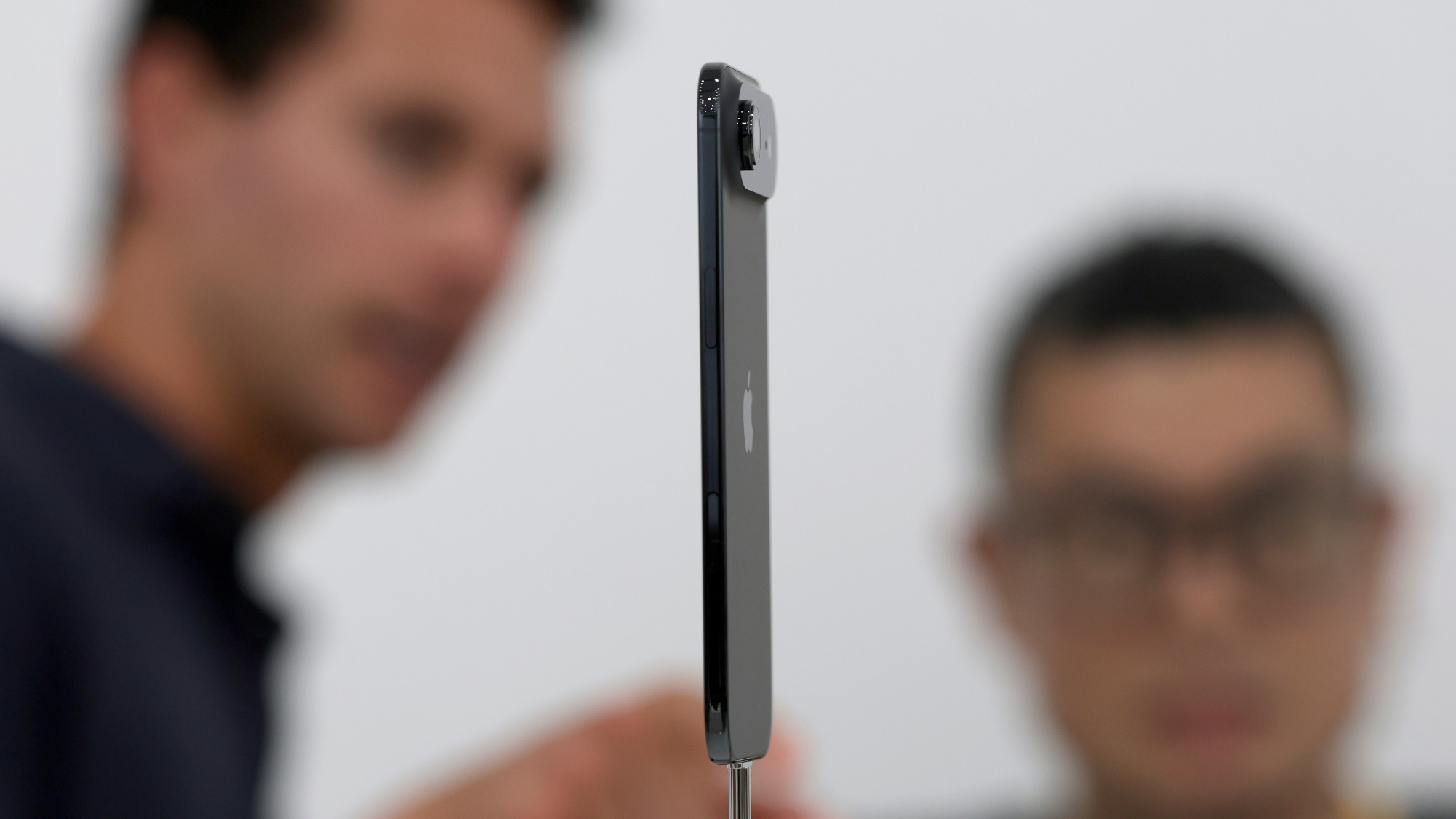Gboard: What can Google's keyboard do?
New feature lets users easily search for information – while gathering information about you
A free daily email with the biggest news stories of the day – and the best features from TheWeek.com
You are now subscribed
Your newsletter sign-up was successful

Google has launched Gboard in the US – a new iPhone-specific smart keyboard which will place more information at the fingertips of users.
Third-party keyboards have been a possibility since 2014, 9 to 5 Google says, but the experiences so far have been "flaky", despite the likes of Microsoft pushing software onto Apple's ecosystem.
Google's effort strongly resembles the standard iOS keyboard, with its flagship feature the only real differentiator in terms of how the system looks, continues the site.
The Week
Escape your echo chamber. Get the facts behind the news, plus analysis from multiple perspectives.

Sign up for The Week's Free Newsletters
From our morning news briefing to a weekly Good News Newsletter, get the best of The Week delivered directly to your inbox.
From our morning news briefing to a weekly Good News Newsletter, get the best of The Week delivered directly to your inbox.
A Google logo "G" sits above the keys. Pressing it brings up a Google search feature embedded within the keyboard, so users can simply push information from the search bar into the main keyboard, eliminating the need to switch between browsers, apps and copy or fiddling around with copy and paste function.
Once downloaded, the Gboard appears wherever the iOS's original keyboard would, so it's not just integrated into messages – it can be found on Facebook, Twitter, WhatsApp and anywhere else you'd usually type. In this respect, Wired reckons the Gboard is more convenient than similar software found on Android devices, calling the built-in search function a "tremendous time-saver".
Two other search functions are built into the keyboard, letting users easily find and share GIFs or emojis – no more swiping through the entire catalogue to find the one you want.
It also comes with glide typing, letting users slide their fingers from key to key, rather than stabbing away at individual letters, while the keyboard predicts the words wanted. This isn't a brand new feature – Microsoft's Word Flow does the exact same thing, as does popular third-party app SwiftKey.
A free daily email with the biggest news stories of the day – and the best features from TheWeek.com
As good as this sounds, there is a "story behind the story", says MacWorld: Google wants your data. By introducing the iOS keyboard, the company will learn more about you with every search and could use that information to push "hyper-targeted ads in your face". The company says non-search data remains on your device, though.
Gboard is only available in the US right now and the company has yet to indicate when it will be available to download elsewhere.
-
 The ‘ravenous’ demand for Cornish minerals
The ‘ravenous’ demand for Cornish mineralsUnder the Radar Growing need for critical minerals to power tech has intensified ‘appetite’ for lithium, which could be a ‘huge boon’ for local economy
-
 Why are election experts taking Trump’s midterm threats seriously?
Why are election experts taking Trump’s midterm threats seriously?IN THE SPOTLIGHT As the president muses about polling place deployments and a centralized electoral system aimed at one-party control, lawmakers are taking this administration at its word
-
 ‘Restaurateurs have become millionaires’
‘Restaurateurs have become millionaires’Instant Opinion Opinion, comment and editorials of the day
-
 Will AI kill the smartphone?
Will AI kill the smartphone?In The Spotlight OpenAI and Meta want to unseat the ‘Lennon and McCartney’ of the gadget era
-
 Has Google burst the Nvidia bubble?
Has Google burst the Nvidia bubble?Today’s Big Question The world’s most valuable company faces a challenge from Google, as companies eye up ‘more specialised’ and ‘less power-hungry’ alternatives
-
 Is Apple’s Tim Cook about to retire?
Is Apple’s Tim Cook about to retire?Today's Big Question A departure could come early next year
-
 How the online world relies on AWS cloud servers
How the online world relies on AWS cloud serversThe Explainer Chaos caused by Monday’s online outage shows that ‘when AWS sneezes, half the internet catches the flu’
-
 iPhone Air: Thinness comes at a high price
iPhone Air: Thinness comes at a high priceFeature Apple’s new iPhone is its thinnest yet but is it worth the higher price and weaker battery life?
-
 Is the UK government getting too close to Big Tech?
Is the UK government getting too close to Big Tech?Today’s Big Question US-UK tech pact, supported by Nvidia and OpenAI, is part of Silicon Valley drive to ‘lock in’ American AI with US allies
-
 Google: A monopoly past its prime?
Google: A monopoly past its prime?Feature Google’s antitrust case ends with a slap on the wrist as courts struggle to keep up with the tech industry’s rapid changes
-
 South Korea's divide over allowing Google Maps
South Korea's divide over allowing Google MapsTalking Points The country is one of few modern democracies where the app doesn't work